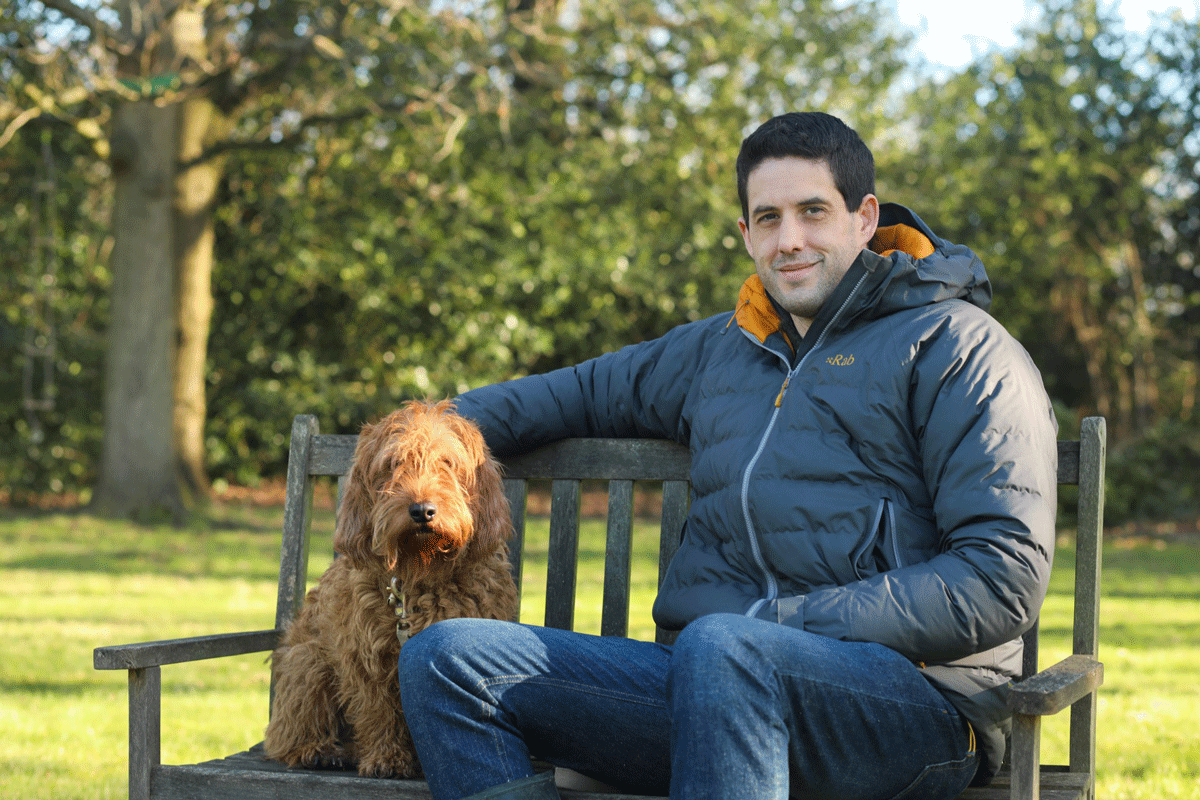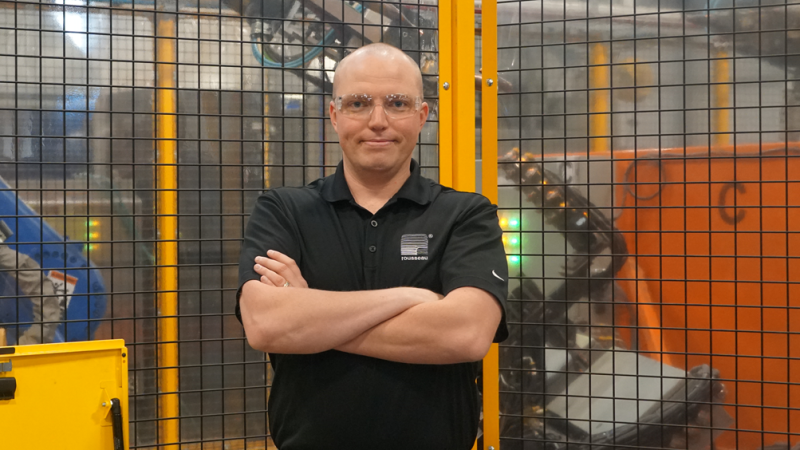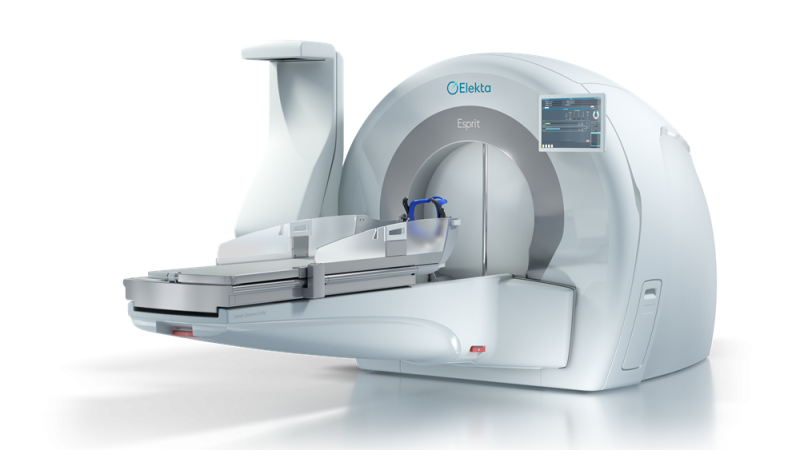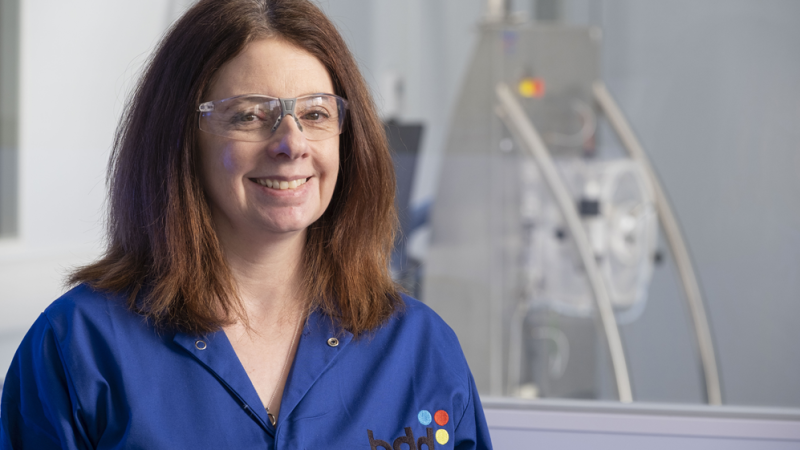Goddard Vet Group is a companion animal practice that serves clients and their pets across Greater London. It boasts three 24-hour hospitals, 46 branch sites, and a technical college that trains the next generation of veterinary nurses. As a whole, the company takes care of over 100,000 pets a year.
The company was founded by one Arthur Goddard in 1952. Eventually, he handed the business over to his son Phillip, and then in 2021 the company joined the VetPartners Group. However, the values Arthur Goddard founded the veterinary company on have remained consistent throughout those 70 years.
“For clients and their pets, we offer high quality, comprehensive, and convenient care,” says Mark Gill, Managing Director of Goddard Vet Group. “Our network of sites across London means we can provide a range of services and expertise to meet the needs of each pet. Having been around for 70 years, we are a trusted brand with colleagues who have been here for a decade or more. We are built on long-standing relationships.”
Because Goddard Vet Group has such strong roots in London, the firm has a well-established footprint and connections to the local communities it serves.
“We have got the individuality and local support you get with a small business, but the scale to provide the comprehensive level of support you get with a large business,” Gill says.
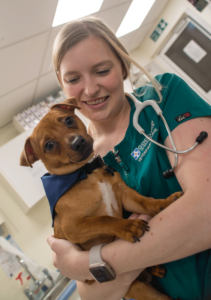 Telemedicine for Pets
Telemedicine for Pets
This is why Goddard Vet Group became an invaluable resource to pet owners during the Covid pandemic.
“It became pretty apparent early on that we needed to find ways to provide care for pets and access to clients,” Gill says. “So, one thing we did was introduce a new telemedicine service to provide a lot of the services that would have typically happened in practice. It reduced the number of people who had to visit the practice and made us very popular.”
It meant that Goddard Vet Group was growing during a period when its competitors were restricting services and closing their doors, leaving market share for Goddard Vet Group to pick up. With that growth, Goddard Vet Group had to continue to adapt.
“Our phone system was becoming overwhelmed, so we introduced an online booking system,” Gill recalls. “We found that through that digital innovation, we could help clients and colleagues, freeing up our people to spend time with clients and pets.”
Valued Colleagues
Throughout our conversation, Gill continues to refer to Goddard’s employees as “colleagues,” a word choice that is central to Goddard Vet Group’s cultures.
“We ban the use of the word ‘staff’,” Gill says. “We use the term ‘colleagues’ to remind ourselves that people choose to work with us. They are not working for us. Everyone has got a choice, and it is up to us as a practice and leadership team to be somewhere people want to work.”
Goddard Vet Group makes a point of treating its people as individuals, investing in them, and even funding their further education where possible.
“There is a big shortage of vets and nurses in the profession, so recruitment is important,” Gill emphasises. “Our college helps with that. There is no shortage of people wanting to become nurses, but there is a real shortage of qualified nurses.”
This is where Goddard’s own college, and the progression it can provide are essential to the company’s pipeline of talent. But first and foremost, Goddard’s secret recruitment weapon is the stories of its people.
“We asked colleagues to volunteer to tell their stories in an animated recruitment campaign,” Gill tells us. “Our animators turned those stories into animations based on real people rather than stories made up by marketing.”
At the same time, unlike many employers, particularly in the veterinary sector, Goddard is not afraid to talk about the bottom line.
“We are transparent about pay. It is uncommon in the veterinary sector to be open about pay, but we include it in ads,” Gill points out.
This transparency continues beyond recruitment, with town hall meetings once a month to update the practice on the latest news and give colleagues an opportunity to ask questions of the company’s leadership.
“Nothing is off the table and questions are not submitted in advance,” Gill tells us. “We have to answer live, so that keeps us on our toes. It leads to real change. Last year we introduced a neurodiversity support service, and we are just now launching a commitment to participate in the British Veterinary Association’s Good Workplace schemes.”
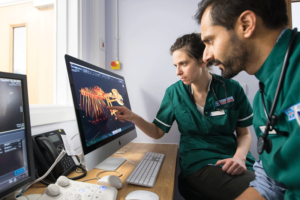 Continuing Care
Continuing Care
Moving forward, Goddard Vet Group is well-positioned to keep growing and evolving to meet the needs of its customers, but some things remain consistent.
“Our first priority is to keep up the provision of high-quality care that we have done for the last 70 years,” says Gill. “But I think we are very cognizant of the fact that clients expect change in all businesses. They want a more digital, more convenient service. There are concerns about the increasing cost of veterinary care, so we need to provide good value for money.”
Simultaneously, colleagues’ ideas of a good work-life rhythm have changed in the aftermath of the pandemic, driving Goddard Vet Group to innovate and embrace new technologies and operating models.
Among those new models, are a new range of hub sites the company is looking to open up.
“The way we operate with our hospitals and branches is a hub and spoke model,” Gill says. “What we have found recently through our growth is that our spokes are full service, whereas a lot of our competitors are limited in the provisions their spokes provide. So, we want to retain that full service, but add new sites that offer urgent care similar to the care model you might have with walk-in clinics. We are filling that middle ground between hospital and GP service. Clients really want that convenient service that allows them to come and get care when they need it.”
Goddard have highlighted ACD Projects as a key partner.
